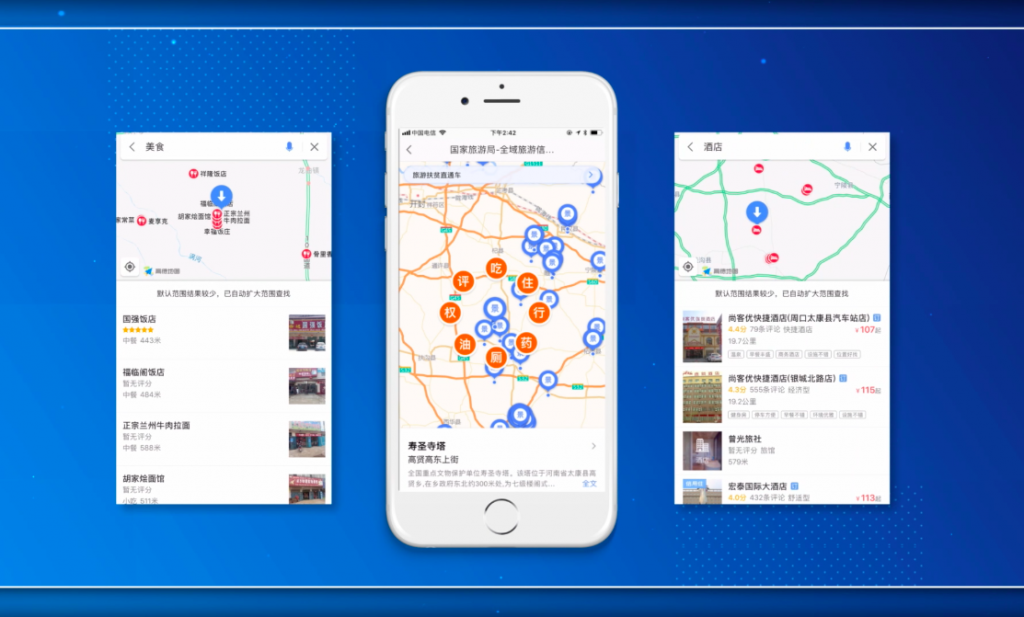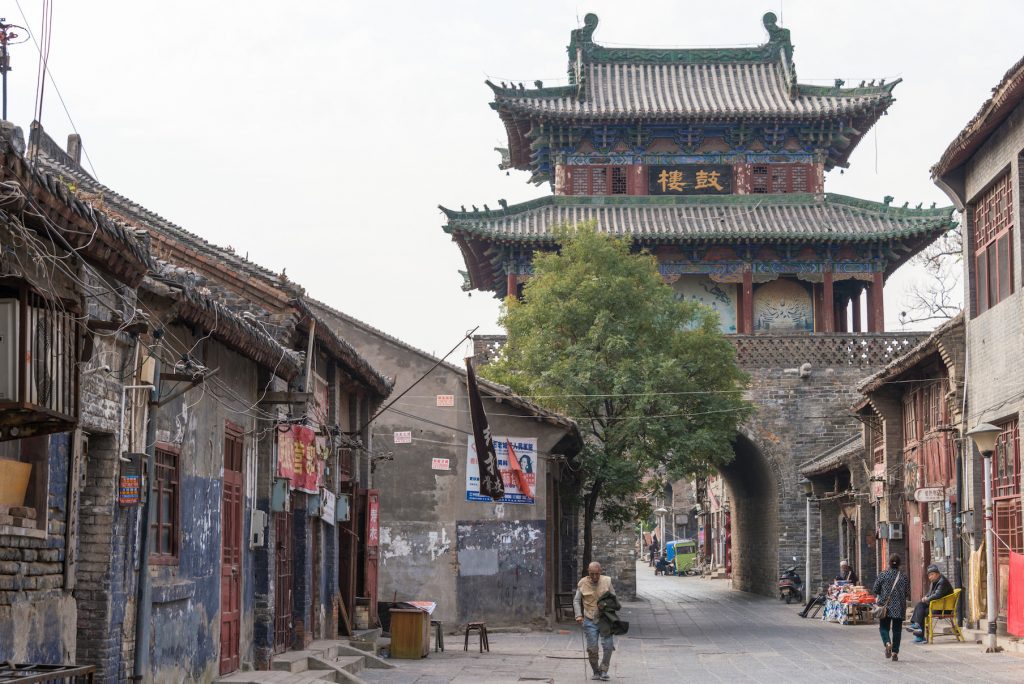
Rural China has some of the most beautiful scenery in Asia, if not the world. But there’s a problem: Much of it isn’t drawing tourists the way other more popular destinations, such as the island of Hainan or the mountains of Yunnan, do. That’s because it’s still largely unknown and far off the beaten path, which means that residents in these areas, who are typically poor, miss out on what could be an important source of income.
Now, Alibaba Group-owned AutoNavi has a solution. The navigation company will provide routes and visitor information via its GPS mobile app to attract tourists to these largely untraveled parts of China, which will help to boost local economies.
The service, called a “poverty-alleviation map,” delivers detailed information about local facilities, ranging from scenic attractions, restaurants and hotels to pharmacies, gas stations andrestrooms, making it easier to find and travel to tourist destinations in rural areas. In addition, the new function provides route recommendations and reviews contributed by other travelers.
AutoNavi launched a beta version of the service in the central Chinese province of Henan, best known as the home of the Shaolin Temple and the birthplace of kung fu. But now visitors to Henan will also find out about Mount Yao or Baiyun Mountain, some of the province’s lesser-known but still worthy tourist stops. The new service quite literally puts these destinations on the map, said AutoNavi President Liu Zhenfei.
“This project connects tourist sites in impoverished areas with the road-tripping users on AutoNavi’s platform,” Liu said. “[We want to] encourage more users to participate in poverty-alleviation efforts in the form of tourism, while helping impoverished areas grow economically.”



While rural towns and villages may lack resources, Liu said, they have much to offer in terms of natural scenery, local cuisine and cultural heritage. The service currently covers about 2,000 scenic attractions in 53 counties in the province, and there are plans to expand across the country. The information displayed is pulled from a pool of analytics from AutoNavi’s geographical database and local tourism authorities.
In addition to growing the poverty-relief map beyond Henan, AutoNavi’s philanthropy team plans to roll out more initiatives throughout the year, including programs to promote environmentally friendly travel and improve traffic efficiency.
“Poverty alleviation has become a strategic focus at Alibaba,” said Liu, who is a Henan native. “We strongly believe that technology is the biggest public service of our time. With a heart to serve society and an innovative ‘smart map,’ one can transform the mountains and rivers of their hometown” to sustainable sources of revenue for communities in need.
Alibaba Group last year announced a RMB 10 billion ($1.5 billion) anti-poverty fund to help the country’s poor over the next five years, to be personally overseen by Executive Chairman Jack Ma. In January, AutoNavi joined with China’s National Tourism Administration to build a data-driven tourism grid, aiming to make navigation easier for travelers. The company said its new map now covers almost all of the NTA’s top-ranked scenic sites in the country.




.jpg)


